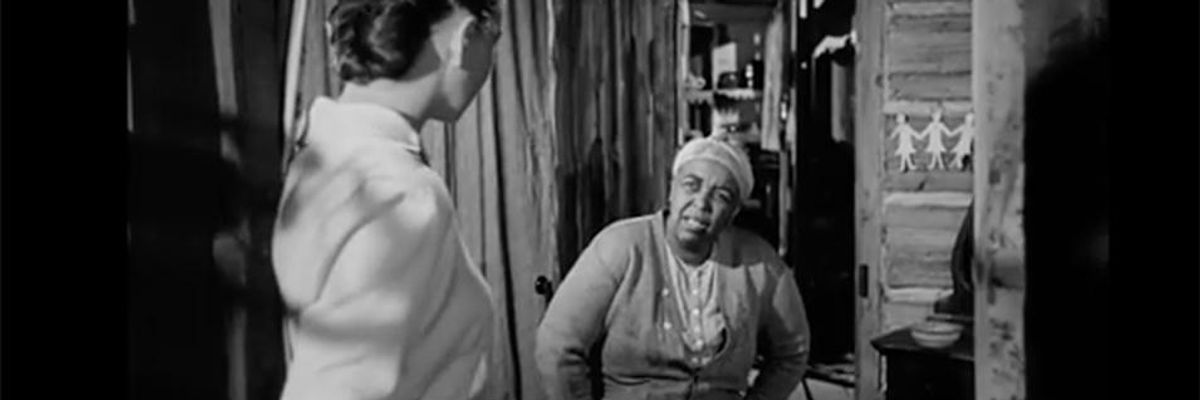Years ago, I sat in a darkened movie theater mesmerized by Elia Kazan's 1949 classic, Pinky. A light-skinned black woman who'd gone north to school, Pinky returns home to rural poverty and fear. Perilous music forecasts trouble. Looking from side to side, Pinky carries her suitcase on a dirt road, pushing back tangled vines until she arrives at the shack of the head-wrapped granny (Ethel Waters) who raised her. "Pinky, child, you're home, bless the Lord!"
But the traveler's secret soon seeps out. Up North, she's been viewed as white. "I've been treated like a human being up there!" whereas every hour in the South holds terror.
Looking white but living black, she can find no social place. If she comes out as Black, she'll lose her white doctor lover up North and be stuck in these barren shacks, where everyone views her with suspicion. If she passes, she'll always be on the run from her true Black past. My heart broke for her dilemma.
It took twenty more years for the social space to appear: Yes, Guess Who's Coming to Dinner told us, it might be rough, but you can love a person of another race in these United States, marry, and live to tell the tale. By that time, I had done just that, and though my hipster husband and I scoffed at the film's pretensions--Sydney Poitier had to be a doctor, we laughed, to marry a white woman--we appreciated the historic moment.
Thirty-seven years later, I munched my popcorn while I watched the latest Pinky incarnation, another heartbreaking tale of lovers who can find no social space. Beautifully rendered, and a "first" at revealing macho men in an affectionate, erotic lifelong love, still, Brokeback Mountain--when considered as part of the pattern of Hollywood films--reveals the studios' fear of showing a range of real gay life. "Damn," I muttered to my partner as we left the theater, "Haven't we moved past The Well of Loneliness?" the 1920s classic novel where the lesbian dies, bitterly alone. While gay people were surely murdered in the era of the film, and are today--Mathew Sheperd's Wyoming torture took place in 1998--our last big movie was Philadelphia. Thirteen years ago, this breakthrough film brought us a similarly sad conclusion: the hero dies.
Is this really where we as gay people are in our civil rights movement, still having to demonstrate our basic humanity, and get ourselves killed in the end? Really, you straight folks don't have to worry, the subtitle might as well have read: we're not about to inhabit your married territory anytime this century. Shades of every early Sidney Poitier movie, magnificent though they were, with the theme of, "Yes, I am a man. I bleed, too."
Aren't we ready, at least, for this generation's version of Guess Who's Coming to Dinner? A portrait of an overcoming-obstacles-but-we-end-up-on-our-own-ranch cowboy couple? If Jane Austen could do it two hundred years ago in Pride and Prejudice, where the lovers overcome impossible class odds to triumph, can't a modern-day producer show us the same glorious outcome? Don't make us wait another 18 years--the historical time between the release of Pinky and Guess Who--to show us a boy-meets-boy happily-ever-after picture.
Within a year, I'd like to see two star-filled Hollywood films in which all the leads survive not only the dramatic conflict, but the ending: first, maybe, a pair of Iowa housewife-farmers who fall in love and settle down on their own small dairy farm; and then a cowboy couple, in Guess Who's Coming to the Rodeo.
Now that would be radical. And every bit as real.

